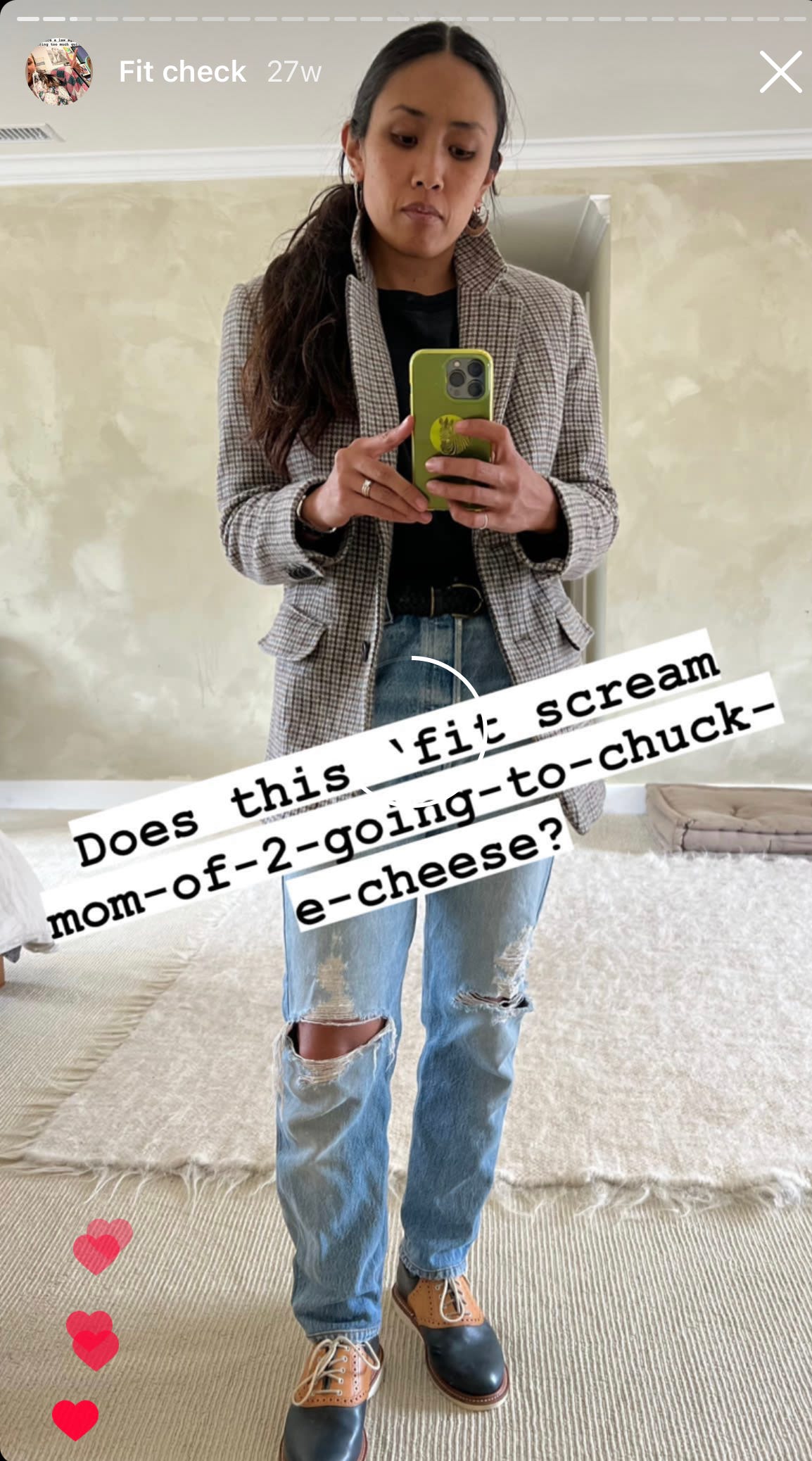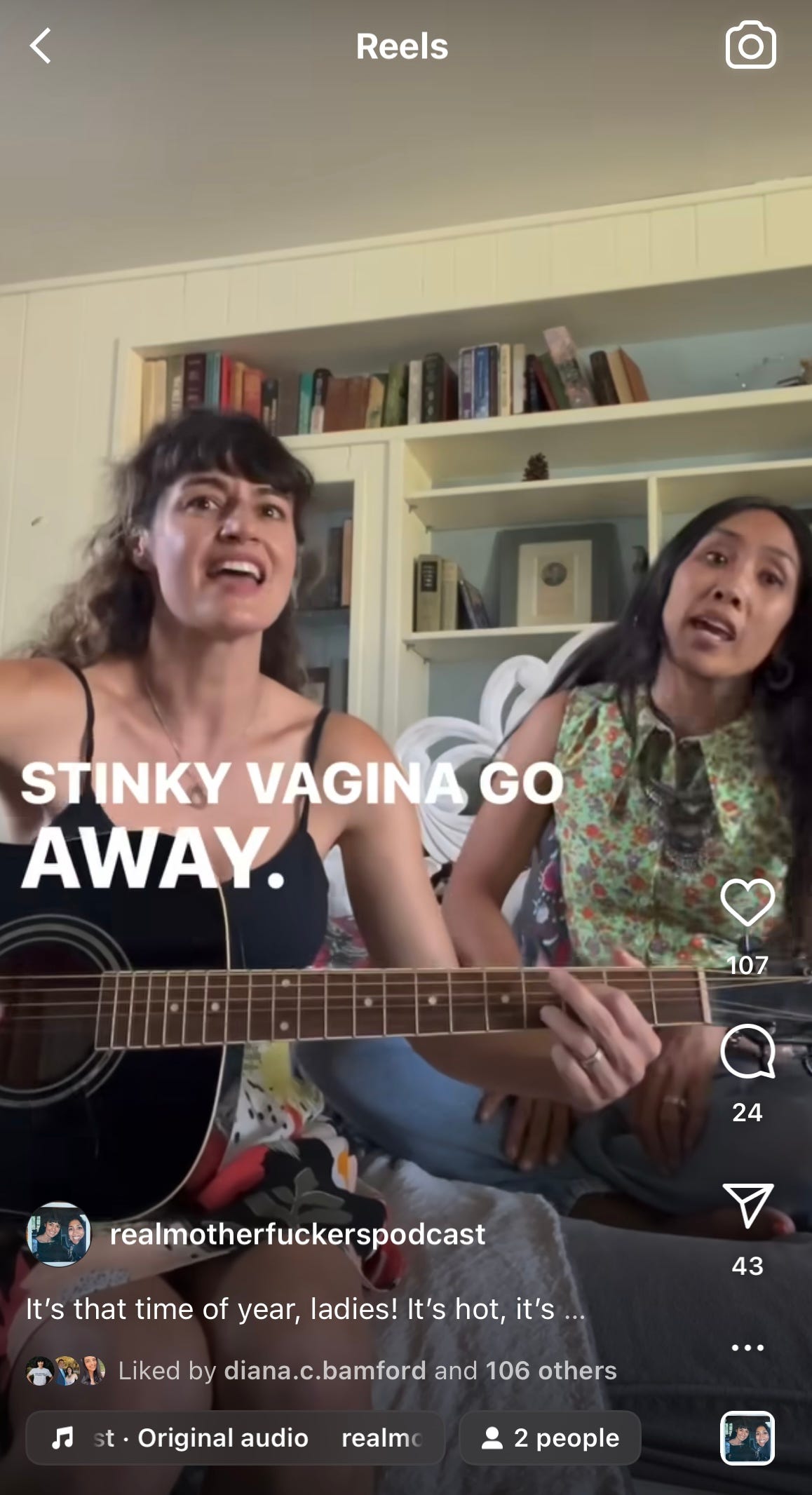Why can't we quit Instagram?
A creator's POV + social media is terrible for our psyche but why do we keep coming back for more?!?! + more Substack Reads: Rising Writers
I originally wrote this piece in early August. It’s unfinished because writing/analyzing/overthinking the thing I didn’t want to think about anymore was exhausting. I scrapped the rant and continued using Instagram with more caution. Real talk: I was too weak to quit it.
I keep coming back to these questions and I’d love to hear your commentary:
Is social media serving you… or screwing you up?
What’s your poison, there’s so many to choose from: Insta, FB, TikTok, LinkedIn, YouTube, Reddit, X (Elon’s Twitter), Snap, Threads, Substack’s Notes…?
If we don’t completely omit social media from our phones, is there a healthy way to use it or do we accept its invasion?
Social media is like a bad boyfriend I cannot seem to dump.
If I announce it on the Internet, is the breakup official? I am taking a break from my personal Instagram. I also manage my podcast IG, which I’ll get to later.
A true guinea pig to the social media experiment, I was on (The)Facebook in college when it was only on college campuses. In 2006 I wrote a long rant on Facebook about how it was ruining my psyche but deleted it. I continued using it until 2017, when all the grandmas jumped on board and I couldn’t stand the political rants anymore, especially the ones posted by grandmas.
In December, I wrote about how after a several years break from Instagram and Facebook, I decided to dip my toe back in because I felt the need to “put myself out there.” When I started writing online, in every step I took, every move I made, something was telling me I needed to dance with the devil.
Optimistic, I wanted to reach more readers (which I have) and create more than I consume (which I haven’t). I thought the mindset of being a conscious creator would be a healthier boundary. Cautious, I wrote a 10 point creed to stave off my social media addiction.
I broke so many of the rules.
Rule #1 was busted immediately. How is that for a bad sign? I swore to not download the app on my phone because I am perpetually on a mission to ward off a phone addiction. I quickly learned features are limited on a computer browser, including sharing links to my articles.
Then #2 was a fail. I did not limit my time to 20 minutes max a day. The time-suck scroll became very real, very fast. When I’m mad, when I’m sad, when I’m bored, when I’m uncomfortable alone sitting at a restaurant for 5 minutes while my friend goes to the bathroom.
In this display of rules, I was also determined to only post meaningful content, which is a mental trap. What’s truly meaningful to me and what will get likes? The two became blurred. I couldn’t honestly answer the difference. Did I really want to post this pic of my cuddling cats or did I know it was low hanging fruit for digital validation? Was I dopamine dressing for myself or was it really for the ‘fit check Likes?
A major flaw in my creed.
#9 states: Create more than I consume.
Social media wants you to be social, duh. We get punished if we just create, place our written word there, drop our art, publish our content and walk away. The model only works in our favor if we feed the machine — we must comment, like, share, wrap ourselves tightly in the network.
When Zuckerberg creates a vision board for his ideal users, one of those personas is me. Mentally uneasy at times but easy to entertain, full of FOMO, and falls prey to snacks. I love me some snackable content.
But I’m here to create, right?
The other problem is now I have a podcast, another medium of work I need to promote. My co-host and I filmed a funny reel in hopes we’d get more brand awareness and gain new followers and, therefore, listeners.
Vanessa and I filmed ourselves singing a silly song on a Friday and planned to post on Tuesday, which I read somewhere is the best day to post although I don’t even know if that’s true because I’m beginning to think it doesn’t matter, if you don’t chalk up more money, don’t play by the algorithm rules, and don’t engage and interact significantly on the app.
By Saturday, we decided we couldn’t wait and I released it that morning before a weekend beach trip I had planned with my kids.
Posting during my precious weekend family time was a dumb move.
After the video was published, I could not separate myself from the possibilities of likes and comments. In response, my body walked around my house but my mind was checked out. At first, our reel received a few likes and the crying laughing emoji. These digital rewards marked the beginning of the end of me being present with my family.
On weekends I typically unplug but I chose to keep my phone nearby. I set it down at our key spot by the door to stave off the gravitational pull but found myself sneaking in a peek — a lot. My kids would talk to me and I’d have my phone in hand, saying yeah, yeah ok, and ignored them. I was short fused with them and my husband. I couldn’t hold a conversation for longer than a sentence before I retreated back to the phone matrix. When it was time for me to pee, I took this as an opportunity to bring my phone so I can go through IG and scroll without interruption. Gross, on so many levels.
My relationship with social media changed drastically when I purposefully created content, which I thought would help my relationship with it. It didn’t.
#9 on my social media rules said “create more than I consume” and I was oblivious of the trap. The more I create and want that content seen, the more I felt the need to consume on the app. Am I an easier target because I’m an indulgent person? Being on Instagram, or any social platform, including Facebook, LinkedIn, and YouTube, and now Substack dissociates me from my reality. My reality is when I can focus on the people in front of me, whom I have deep relationships.
I’m myself when I slow down and live a more analog life: go on walks, read a book, exercise with a group, read to my kids.
Social media makes me less social with the actual people in my life, in front of me, those I can share a meal with or hug. My mind and actions are short circuited.
A million studies have been analyzing it but I keep wondering what is this really doing to our psyche? What is it doing to our interpersonal relationships and families?
The CDC’s bi-annual Youth Risk Behavior Survey released this year say that most teen girls (57%) now say they experience persistent sadness or hopelessness (up from 36% in 2011). And 30% of teen girls say that they have seriously considered suicide (up from 19% in 2011).
Most bodies of research talk about the decline of our youth’s mental states, an increase in their social media and phone use, which is a likely correlation but not enough evidence suggests causation. While I respect the efforts of evidence-based research, I also know this is bullshit.
Here’s my own facts. Social media is toxic to my soul and brain (which, by the way, is a fully formed adult brain) and I’m confident it’s doing the same or worse to our society’s young brains. It’s also screwing up midlife brains and older brains.
Social media pulls me into a dimension and when I come out of it, I feel like crap, in a daze. It’s as if everything I learned about being a human — deep meaningful connections, living in the present, and being intentional — feels far from what I feel when I post a reel or scroll through posts.
As a smaller writer and podcaster who dances with the devil in promoting my work, where do I go from here?
A few Substack pieces and conversations to think about when you analyze your relationship with social media from writers Maia Toll, Kat River, Marlee Grace, Luisa Skinner.
Substack Reads: Rising Writers
This is a play on Substack Reads — a curated list of Substack articles I enjoy. My version includes authors with smaller subscriber numbers (in the hundreds).
writes snippets of joy. We met on Substack, send handwritten letters to each other in the mail and we continue to admire each other’s work. In this week’s piece, she wrote about meeting The Fonz, a.k.a. Henry Winkler. Did you know he has a learning disability and as a child, his parents called him ““dummer hund”, or dumb dog? Sad but there’s a silver lining. Read her piece to feel the feels and consider if you’re an “illuminator” or “diminisher.” submitted a story for a writing contest with and I remember reading it before it won the prize. It stuck with me like super glue. I’ve even talked about it to people IRL when I’ve discussed the complexities of mental illness and disorders. Natalie is back with more vulnerable words and I’m here for it!If I didn’t have kids, I imagine myself in
‘s shoes, living in a van and seeing the world. This week’s piece is so relatable as a writer who publishes on a consistent schedule. I come up with my content and also self-edit. I often say the words Lyndsay wrote: “Some thoughts don’t want to be shared. Some words don’t want to be written.” Amen!







yup, yup, yup. Actually, I recently decided that I was going to pay attention to my instagram again after being burnt out on it constantly promoting our bakery business. It was a nice, long break of infrequent posting and I really did think that I was going to ride off into the social media sunset after we closed our business. Oh well. I am back.
Such a great piece! Honestly, I feel this is going to resonate with so many 🙌